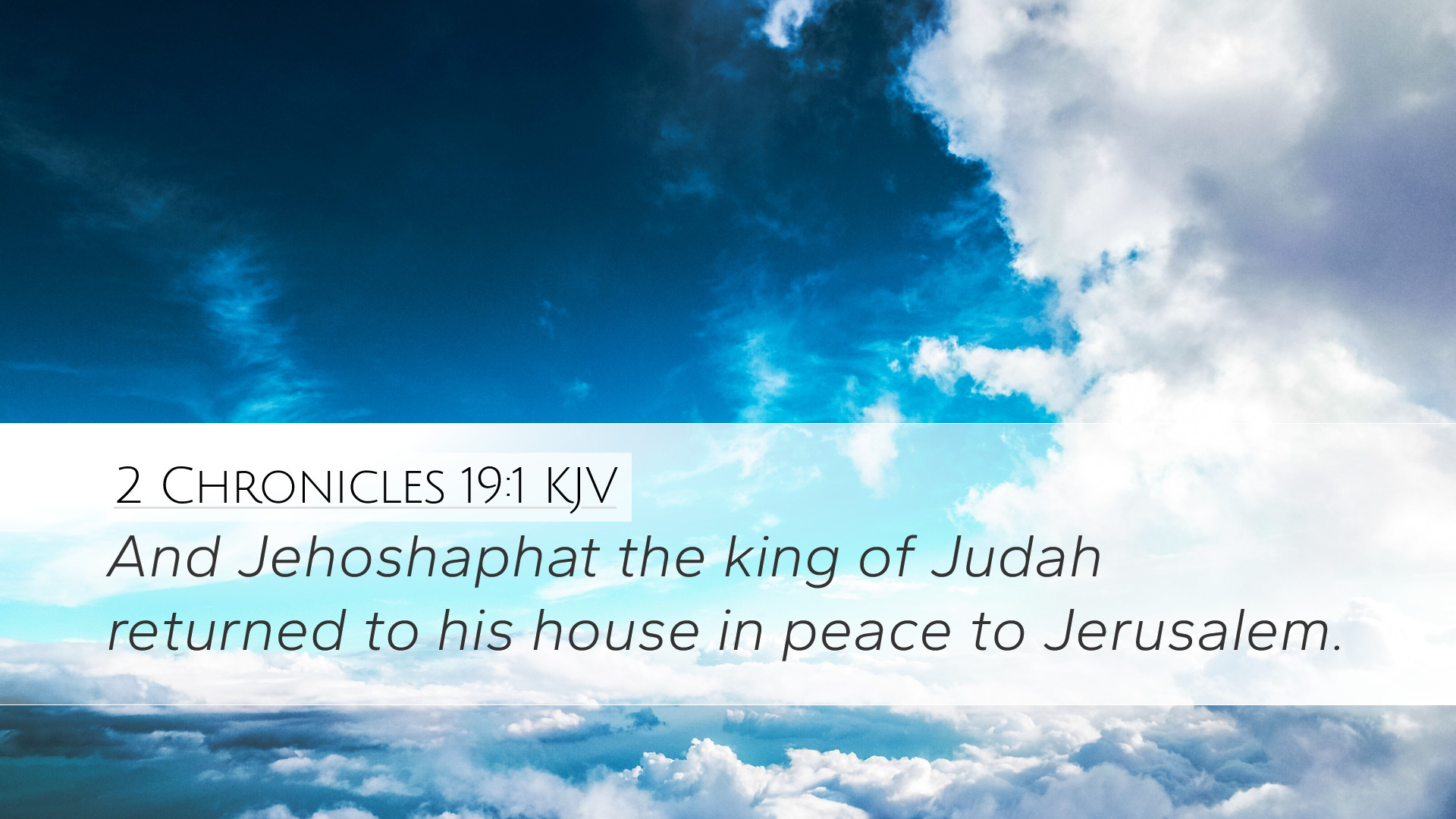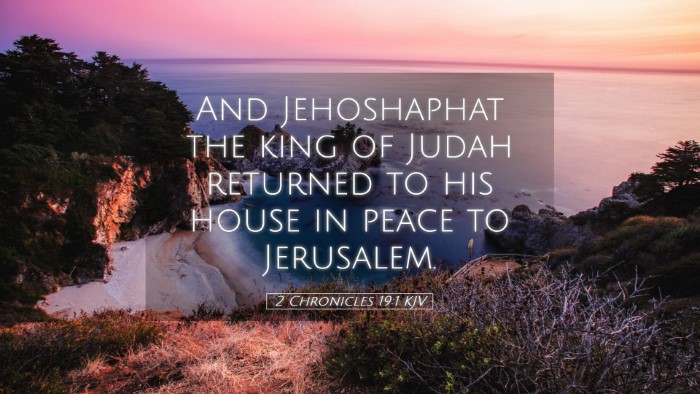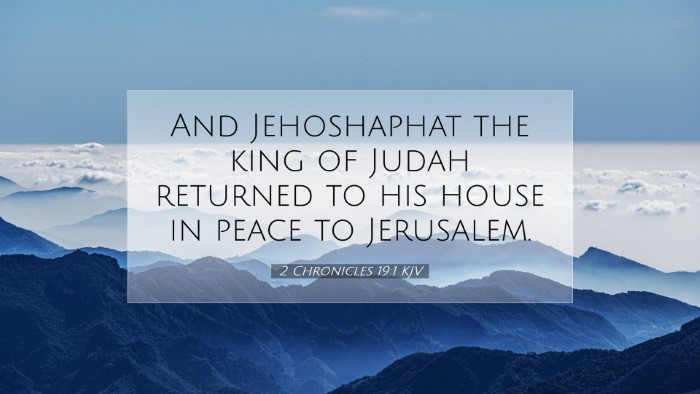Commentary on 2 Chronicles 19:1
Verse: "And Jehoshaphat the king of Judah returned to his house in peace to Jerusalem."
Introduction
This verse marks a significant moment in the reign of King Jehoshaphat, highlighting the aftermath of an important event in his life as a king. Commentaries from historical Christian theologians provide rich insights into the implications of this verse.
Contextual Background
Second Chronicles recounts the history of Judah and its kings, focusing particularly on their fidelity to God. Jehoshaphat was known for his reforms and attempts to lead the people back to worship of Yahweh.
- Religious Reforms: Jehoshaphat is noted for sending out judges and instructing them to uphold the Law of Moses (2 Chronicles 19:5-10).
- Alliance with Israel: His alliance with Ahab led him to a battle at Ramoth-Gilead, which underscores the risks of forming ungodly relationships (1 Kings 22).
Analysis of 2 Chronicles 19:1
This verse, while seemingly straightforward, carries profound implications for leadership and divine favor. Jehoshaphat’s return “in peace” indicates that he was granted divine protection, even after walking upon a path fraught with challenges.
Divine Favor
Many commentaries note that Jehoshaphat’s peaceful return suggests God’s mercy despite previous errors in judgment. Matthew Henry states that this peace was a reward for Jehoshaphat’s service and dedication to God’s commandments.
Peace as a Theme
The thematic element of peace reflects God’s ability to bring order even amidst turmoil. As Adam Clarke writes, “Peace is the fruit of righteousness.” Jehoshaphat desired to lead a nation oriented toward God’s purposes, and this peace is indicative of that alignment.
Lessons for Leaders
For pastors and theologians, Jehoshaphat’s return serves as a reminder of several key leadership principles:
- Accountability: Leaders must be willing to hold themselves accountable to God’s standards.
- Wisdom in Alliances: Importantly, the alliances formed should align with God’s will and purpose.
- Seeking God’s Guidance: True leaders prioritize seeking divine wisdom and guidance in decisions and actions.
In Conclusion
The concluding message of 2 Chronicles 19:1 is one of hope and assurance — that despite hardships and mistakes, there is peace when aligned with God’s will. Jehoshaphat’s life offers a profound example for modern-day believers, emphasizing the importance of righteousness, divine guidance, and the peace that accompanies a life devoted to God.
Further Reflection
As theologians reflect on this verse, it poses crucial questions for personal and communal scripture study:
- How can we ensure our paths are aligned with God’s commandments?
- In what ways do our choices affect the peace we experience in our lives?


